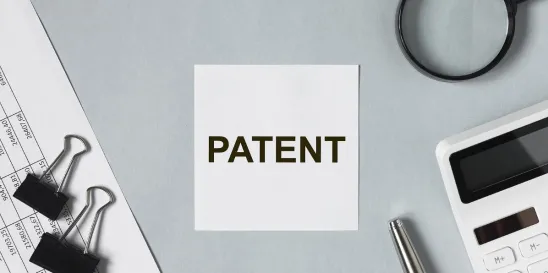In a much anticipated judgment, the UK Supreme Court delivered on 20 December 2023 its ruling in the case of Thaler v Comptroller-General of Patents, Designs and Trade Marks (Thaler (Appellant) v Comptroller-General of Patents, Designs and Trademarks (Respondent) – The Supreme Court) on whether an artificial intelligence (AI) system can be named as the inventor for a UK patent application.
The court unanimously found that AI cannot.
This judgement represents the culmination of a long-fought battle by the appellant, Dr Thaler, who submitted two UK patent applications for inventions (one for a food container and the other for a light beacon) which all parties acknowledged had been autonomously created by an AI machine called “DABUS” which Dr Thaler was the sole owner, creator and user of.
The grounds for the court’s decision was the definition of “inventor” under the Patents Act 1977 (the Act) which requires the inventor of a patent to be a natural person. The court held that an AI system is not a person, let alone a natural person, thus this requirement cannot be met by an AI system which has autonomously created an invention.
The court went on to find that the human owner of an AI system (or any other machine) which creates or generates an invention autonomously is not permitted to apply for a patent for that invention finding that the relevant provisions of the Act “do not confer on any person a right to obtain a patent for any new product or process created autonomously by a machine, let alone a person claiming that right purely on the basis of ownership of the machine”.
In addition to this UK claim, Dr Thaler had brought similar proceedings in the US and EU, with the US Patent and Trade Marks Office and European Patent Office Legal Board of Appeal both reaching for their respective patent systems the same conclusion as the UK Supreme Court in April 2020 (DABUS Denied: Only Natural Persons can be Named as Inventors on US Patents | Global IP & Technology Law Blog (iptechblog.com)) and December 2021 (J 0008/20 (Designation of inventor/DABUS) 21-12-2021 | Epo.org) respectively, namely that a natural person/human inventor was required for a patent application which DABUS was not and that Dr Thaler’s mere ownership of a machine which had autonomously created an invention was not sufficient to allow a patent application to proceed.
So for the moment, the position under the UK patent system is that AI is very much a tool rather than an autonomous agent in its own right. However, the court did acknowledge that the system may need to change in future to reflect the increasing prevalence of AI and that its ruling is not intended to prevent that, making clear that its judgement is not concerned with the broader question as to whether technical advances generated by machines acting autonomously and powered by AI should be patentable nor whether the definition term “inventor” ought to be expanded to include such machines.
As such, in terms of predictions for the coming year, the commencement of consultations on changes to the UK patent system in light of AI feels like a safe bet.






 />i
/>i
